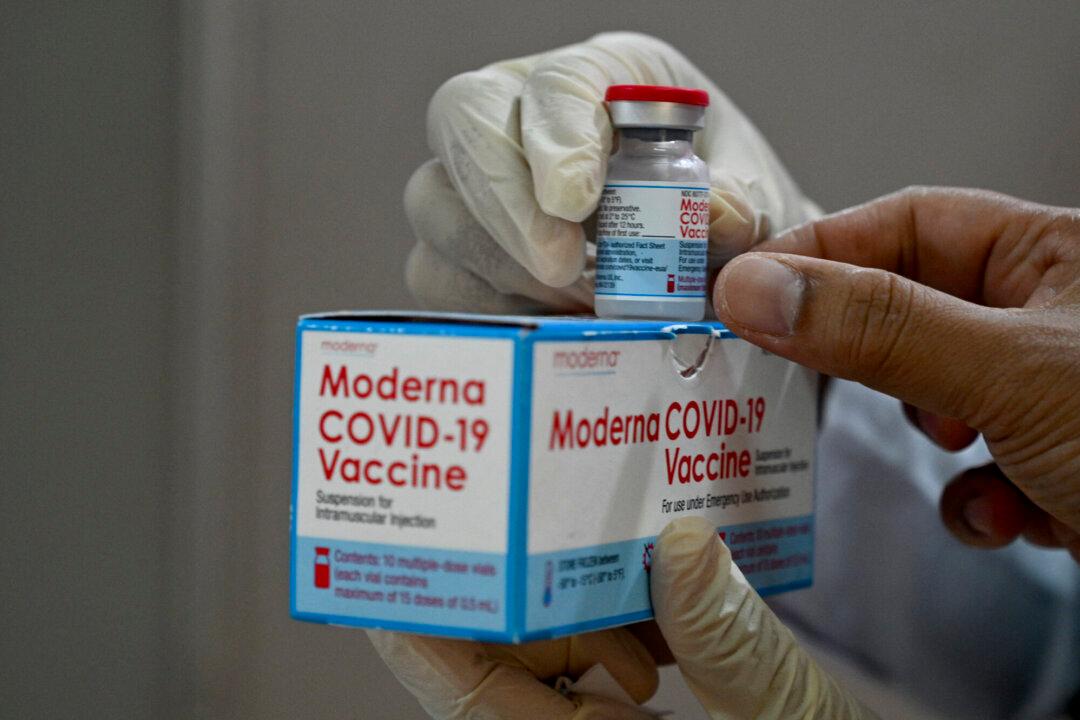The Food and Drug Administration’s (FDA) decision to shorten the interval time for Moderna’s COVID-19 vaccine to five months was based on scientific evidence that included the safety data from Pfizer’s booster shots given in Israel, the health regulator wrote in its authorization letter to Moderna.
The health regulator announced Friday that it had amended its emergency use authorization for Moderna’s COVID-19 vaccine, shortening the six-month interval time between completing the two-dose series and the booster to five months. This change aligns with the FDA’s earlier revision for Pfizer’s COVID-19 vaccine.






